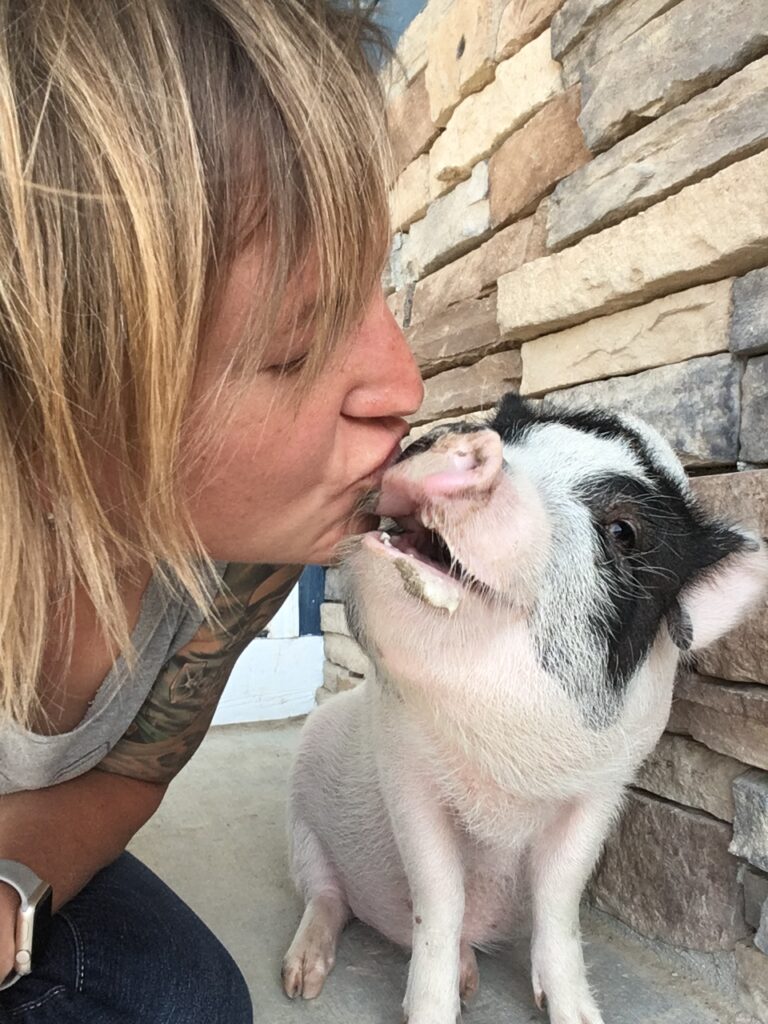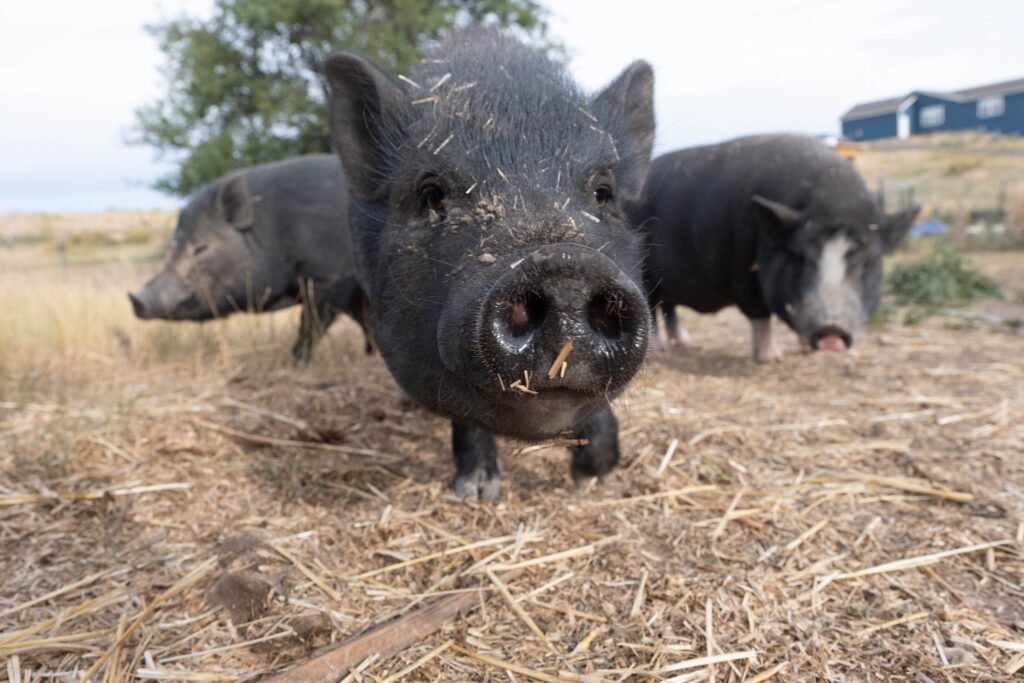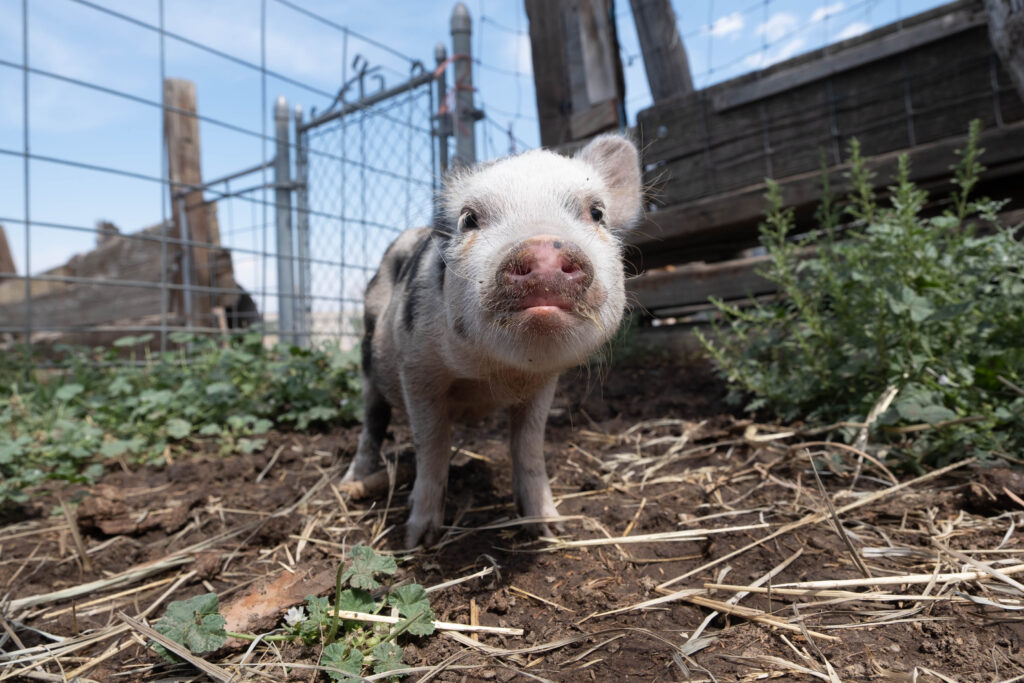There are more than 60 counties in Colorado, each with their own regulations, rules, and zoning policies. Hog Haven Farm strives to educate potential pig owners by providing pertinent information for various counties in Colorado, where laws differ on keeping a pig as a pet. Unfortunately, many pigs are classified as livestock; while we strive to change the conceptions of potbelly pigs, owners and potential owners of these wonderful creatures must be aware of laws in the counties in which they reside. When owners are forced to remove their pigs because of zoning laws, the results are heartbreaking and devastating. Hog Haven Farm hopes to educate you before you are forced to re-home your pet! Below are resources you may find helpful for legally keeping your potbelly pig. We keep this page up to date as we obtain new information, but please, contact your county zoning if you have questions about pig ownership.

Denver Metro Areas
Commerce City (Adams County): Potbelly pigs are permitted, but you may only have one (1) per household, and there is a 70lb weight limit. More information can be found here.
City of Aurora (Adams and Arapahoe Counties): Potbellied pigs are banned in suburban areas; please check your specific zoning! If you reside in A or RA zoning, you may keep livestock, which includes potbellied pigs. Please visit this link for more information. You may petition zoning in City of Aurora to keep a pig as an emotional support animal (ESA), but the process is arduous and not guaranteed.
City and County of Denver: A Livestock or Fowl Permit allows an individual to keep livestock or fowl such as, but not limited to, horses, mules, donkeys, burros, cattle, sheep, goats, swine, chickens, geese, ducks, or turkeys on their property. Potbelly pigs fall into the livestock category as swine. In order to obtain a Livestock or Fowl Permit you must first send a (pre-approval) letter to the Director of the Division of Animal Care and Control at 1241 W Bayaud Ave, Denver, CO 80223, with specific information. A formal request must be submitted to Zoning, and if Zoning approves the request, the owner will need to send a copy of the zoning approval letter to the Director of Animal Control. The owner then must purchase the permit from Animal Control. Please visit this link for more information.
City of Englewood (Arapahoe County): Potbellied pigs are currently banned.
City of Lakewood (Jefferson County): Livestock are permitted on properties, zones R-1-43, R-1-18, R-1-12, AND R-1-9 when certain criteria are met. There is a maximum 3 pigs per household; currently, City of Lakewood has a size limit of 70lbs per pig. Please visit this link for more information on zoning.
City of Littleton (Arapahoe, Douglas and Jefferson Counties): Potbelly pigs are classified as livestock; there are certain zones within the City that allow for livestock, including A, RE, RL, and RS. Please check your zoning prior to adopting a potbellied pig; they are not allowed in most zones. Please visit this link for more information on zoning.
City of Northglenn (Adams County and Weld County): One potbellied pig per household is allowed, but there is a 95lb weight restriction, and the pig must be registered with a bona fide potbelly pig registry (such as AMPA). You can view the full zoning code here.
City of Thornton (Adams County): Each household may have no more than four adult animals, which may include dogs, cats and one Vietnamese potbellied pig. (Animals under three months old are not included. Domestic birds, fish, snakes (under six feet) and reptiles that are nonpoisonous and not a health hazard are welcome.)
City of Westminster (Adams County): you may keep one (1) potbellied pig, not to exceed 95lbs, so long as you have a permit. Visit City of Westminster’s Code of Ordinances for more information. To apply for a permit, visit this link.
Jefferson County (Unincorporated): Livestock are permitted in this county. Please refer to specific zoning requirements for the exact number of animals per acre/square footage. Please visit this link for more information.
Wheat Ridge (Jefferson County): You may obtain a permit to keep up to two (2) potbellied pigs. Please visit this link for more information.
Northern Colorado, including Boulder/Lafayette/Longmont/Fort Collins
City of Boulder: you may keep pigs, but the number of pet pigs varies on type of zoning and lot size. Please visit this link to find your zoning type and restrictions/ allowances.
City of Lafayette (Boulder County): you may keep up to two (2) potbellied pigs, but they may not exceed 22″ in height or 150lbs in weight. The pig must be neutered or spayed, and also be vaccinated. More information can be found within Lafayette’s Municipal Code.
City of Longmont (Boulder and Weld County): you may keep potbellied pigs in city limits, but each pet pig must be licensed within 30 days of acquiring the animal, and must have proof of neuter/spay and veterinarian health check/proof of breed. Visit this link for more information.
City of Loveland (Larimer County): Potbellied pigs are allowed within city limits, but must be licensed, neutered/spayed, and vaccinated. View the municipal code here.
Fort Collins (Larimer County): you may keep potbellied pigs as pets per the same guidelines as dogs/cats/rabbits. Please visit this link for more information.
Southern Colorado and Colorado Springs Metro Areas
City of Colorado Springs: Colorado Springs allows homeowners to have a maximum of two (2) potbellied pigs, given that they do not exceed 100lbs each. Potbellied pigs must be registered with the city’s animal control office for an annual fee of $75 per pig. In addition, potbellied pigs must be microchipped and altered to reside within city limits. In public areas, pigs must wear a harness and lead, name tags, and leads may not exceed 10′ (ten feet) in length.
City of Woodland Park: Woodland Park does not have any zoning restrictions on potbellied pigs, nor are there any registration/licensing requirements for pigs. There is a maximum of three dogs per household, but no limits specified for other types of domesticated animals.
El Paso County (Monument, Fountain, and Unincorporated Colorado Springs): You may keep up to 6 domesticated animals in your home in any combination. There is an ordinance against public grazing–so bear in mind that you may not take your pig to any public area, such as a park, and allow them to eat the grass.
Pueblo, Boone, Rye, and Pueblo County: There are no zoning restrictions against potbellied pigs; you may keep domesticated pigs in your home without licensing requirements.

